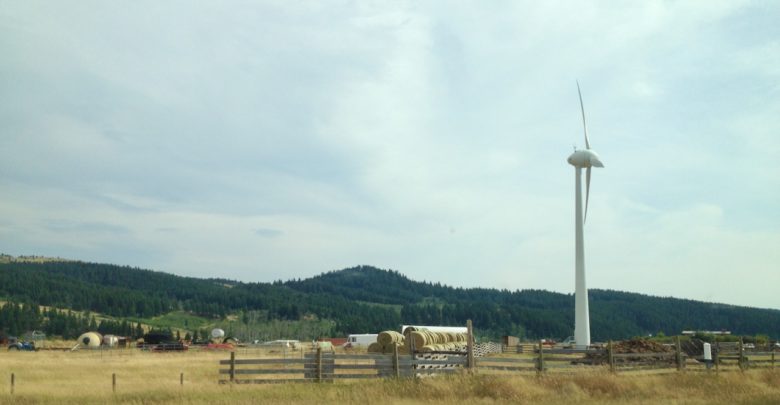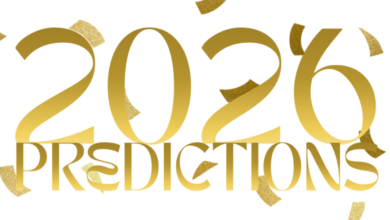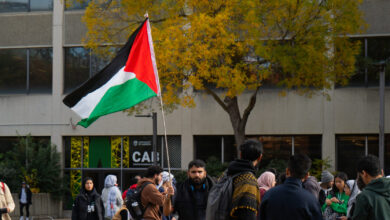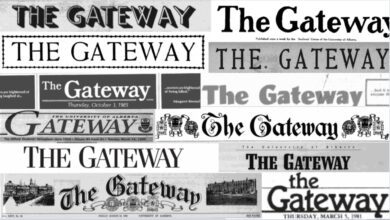Alberta’s identity crisis: what does it mean to be a young educated professional in Alberta?
Identity is one of the many reasons young people are fleeing the province. So, what does it actually mean to be Albertan?
 Emily Williams
Emily WilliamsWhen people mention Alberta, what comes to mind?
The Rocky Mountains, the wide open prairies and the boreal forest are some of the iconic landscapes Alberta has to offer. The province has also historically offered an “Alberta Advantage,” meaning high paying jobs paired with low taxes and low living expenses. But there are also many Albertan stereotypes that frequently come up as our province is associated with and often reduced to, conservatism, farming, and the fossil fuels industry. All of these images combined, form a kind of ethos in Alberta.
What this ethos doesn’t tell us is that Alberta seems to be pushing certain people away and the consequences for the province are potentially huge.
In the past few years, it seems as if an increasing number of people around me have been talking about leaving Alberta for good. I myself have started considering universities in other provinces for my after-degree as I have grown increasingly dissatisfied with the current climate of our province. My feelings that many around me were either moving provinces or wanting to move were not unfounded.
In each of the first three quarters of 2021, interprovincial travel statistics showed an increased flow of people leaving Alberta. The province lost a net total of 5,447 people — most of which left to British Columbia. While Alberta has historically seen interprovincial migration rise and fall with the boom and bust cycles of oil prices, there are reasons to believe that this is different. As the public sector has faced increasing hostility from the provincial government, there are concerns about “brain drain” as educated professionals are leaving to find opportunities elsewhere.
Doctors were one of the first groups where this phenomenon could be seen. The provincial government was dedicated toward capping the pay of doctors in Alberta during a pandemic. As a result, 42 per cent were considering leaving last summer according to a survey from the Alberta Medical Association and some actually did move, leaving rural communities especially with a short supply of doctors.
To follow came attacks on healthcare workers, teachers, post-secondary students and staff, not to mention the public service more broadly. These groups are likely under the same impression as doctors in this province as during a global pandemic, they are at war with their provincial government and don’t feel that their jobs are secure. These groups are also educated and don’t have jobs that require them to stay in Alberta — why not look elsewhere?
The effects of this sentiment in young people can already be seen as demographics in Albertan urban centres grow increasingly older. Edmonton and Calgary used to be demographically young cities and this has already begun to change. According to Stats Canada, Calgary a decade ago was fifth highest out of 35 metropolitan regions in terms of percentage of the population that was 20-24 years old. Today, it has fallen to 29th place and this is the fastest falling age group for the city.
This raises a question about the next generation of educated Albertans. Students, too, are looking elsewhere when thinking about their future plans. Rowan Ley, president of the Students’ Union (SU) told me about the findings of an SU survey called “Your Life After UAlberta” conducted in March 2021.
“We found that a shocking number of U of A students don’t see themselves remaining Albertans once they finish their degree,” Ley explained.
61 per cent of respondents felt their chances of staying in Alberta were only 50/50. And that number was much higher for particular groups; for gender non-binary students it was 85 per cent, transgender students 100 per cent, and for students facing food insecurity it was 85 per cent.
“There’s a narrative out there that people who leave Alberta are privileged folks who are moving to Vancouver for lifestyle reasons. Essentially, we know from our data this is actually not true. The students who plan to leave are the ones that don’t feel welcome in Alberta or don’t feel they can make it in Alberta,” said Ley.
Respondents in the survey also ranked reasons for wanting to leave. Chances of employment in their field was the biggest factor for many; however, for gender minority students, feelings and opinions about the provincial government (positive or negative) were ranked equally as high.
“Compared to the rest of Canada right now, Alberta budget cuts are disproportionately being targeted towards things that serve youth. Older folks are not really being asked to pay for these cuts, but we, who weren’t even old enough to vote when the mistakes were made, are,” said Ley. “They got us into this mess and we are the ones that are being asked to shoulder a disproportionate amount of the burden of cleaning it up. And I think people resent the unfairness of that.”
But it goes deeper than just finances for many people. “I think it’s clearly true that people who feel that they have not been supported in their time here, are more likely to leave. Someone is not going to build an identity as an Albertan if they feel that they’re not welcome. Actually in a focus group once, the way I heard it described was, “I can’t feel like I love a place that doesn’t love me back” and I found that really impactful,” said Ley.
So who are Albertans and perhaps more importantly, who do Albertans think they are? This is a question that Jared Wesley, a political scientist and professor at U of A, explores in his research as part of Common Ground, an ethnographic study studying political culture in Western Canada. In “Draw me a Westerner,” Wesley and his team have focus groups draw the quintessential Albertan or Saskatchewanian.
“The exercise is pretty simple. We just ask people in their mind’s eye or if we give them a piece of paper and a marker, to draw us an Albertan. For the vast majority of people, whether it’s in Alberta or outside of Alberta, they’ll draw a cowboy or a roughneck or a farmer — typically a white, middle aged to older-aged gentleman,” Wesley explained.
The same images of a man in plaid, surrounded by prairie farmland or an oil patch and a truck were drawn over and over again. Participants would also name their drawing and soon these patterns had created a character of sorts: “Average Joe.”
“We didn’t expect people of different backgrounds and life experiences to all draw the same thing. I remember sitting in a focus group where two young women of colour both drew basically the guy sitting next to them who is the quintessential roughneck. This was in Fort McMurray — I remember that distinctly.”
The “Average Joe” Albertan may not be real, but he is a strong force in the political culture of this province. He is in the mind of not only citizens, but politicians too, and there are real political implications stemming from this narrow definition of an Albertan.
“If we listen to the way that Premier Kenney talks about his friends, for example, his friends are almost always people who we see showing up in our focus group drawings. It’s a small business owner or it’s a farmer,” said Wesley.
“Average Joe” and what he wants, are often abstractly at the centre of politics in Alberta. “It informs the way that policymakers view what is important, and by extension, what’s not important in terms of public policy,” Wesley said.
So does “Joe” contribute to youth wanting to leave Alberta? Wesley said “to the extent that people don’t see themselves as part of the broader political community, yes.”
Focus groups were conducted in many different settings, including university campuses and similar results were seen across the board. “It was fascinating to me to start thinking about how people are not drawing themselves,” he said. “These are obviously some of the most highly educated people in their generation, and they’re all drawing the same Joe that everybody else does.”
Wesley recalled a moment from a focus group at Grant MacEwan where two women on opposite ends of the room both drew a “plaid-wearing, baseball cap-wearing farmer.” When he asked who they drew, they both replied at the same time, “that’s my dad.” After establishing that the two of them were not sisters, he asked if they had mothers and if they did, were they born in Alberta, they both replied yes. When asked why they hadn’t drawn her, they both said it was because they were supposed to draw an Albertan.
“There’s just this idea that to be Albertan means you have to be a hyper-masculine male. We see this in government advertising. We see it in not just in our focus groups, but on TV and everywhere else,” Wesley explained. “To the extent that that’s your view of what it means to be Albertan, maybe you don’t feel like you belong.”
Not identifying with the “Average Joe” Albertan is one less reason to stay in Alberta. On top of this, recent budget cuts and a stagnant economy are making living in Alberta less appealing.
“It’ll be interesting to see the longer term impact of post-secondary cuts to see whether students start to leave because tuition gets too high. That’s certainly a hypothesis, but it hasn’t been born out in previous out migrations,” Wesley said.
Wesley wondered what the future of this province will look like over a decade from now, when his two young kids will be entering university.
“Money certainly isn’t the only consideration, but quality of education certainly is too when it comes to choosing what school to go to. If you’d asked me a decade ago, where would I want my kids to go to school I would have said U of A — now, I’m not sure. And that’s as a parent, that’s not as a political scientist.”
When I asked him why young people should stay in this province, he pointed out how Alberta’s uncertain future provides a certain opportunity.
“As a citizen, I’d like them to stay because I think that of all the places in Canada, they’re going to need the brightest minds to come up with some creative solutions to some pretty big environmental, economic, and social problems. Alberta is going to be the epicentre of all of those.”
Wesley explained that when there are enough people challenging the dominant ways of thinking, that is when political culture changes and leaps forward. The COVID-19 pandemic has exposed how “cowboy bootstrap individualism” cannot protect us from a global pandemic. Perhaps Alberta’s political culture is set to change as an increasing number of Albertans speak out against the policies of the provincial government.
“I think that Premier Kenney and his inner circle have a very 1990s view of Alberta political culture…the entire population has changed, not just generationally, but thanks to migration a whole bunch of different people from other parts of the world and other parts of Canada have come here,” said Wesley.
“I think they misunderstood the extent to which today’s Albertans care about those issues enough to protest, enough to call their MLAs, enough to call their school board trustees. And that, I think, explains part of why the UCP is falling out of favour: because they’re just simply not in touch with what it means to be Albertan anymore.”
This same tension was raised by Rowan Ley as he thought about how recent provincial policies go against values in Alberta, specifically the extent to which post-secondary education has been cut.
“Something that Alberta has is not an exceptionalism, but a desire for exceptionalism. We don’t want to be just another minor province in a country in a remote corner of the world — we want to compete with the best in the world and we want to be a hub,” he said. He explained how Alberta has historically spent more on post-secondary in order to compete with other world class universities.
“And we’re moving away from that, towards a model where our post-secondary institutions are okay but are only regionally significant and are no longer world class. I personally think that’s abandoning a big part of Alberta’s identity, which is the fact that we compete with the best and the fact that we don’t accept being second to anyone.”
Ley explained that he thinks identity is something the province struggles with and has to sort out moving forward. “If you look at polling data, there’s a difference between the perceived identity of Albertans and the actual identity of Albertans…I guess the question is, are we our stereotype or is our identity who we actually are? And really it would have to be a bit of both.”
Rowan said while he may travel to experience new things, he does see himself always returning to Alberta. He said factors that fall in Alberta’s favour for him, are low cost of living and the opportunity to “stay and fight the good fight.” But he doesn’t blame others for wanting to leave.
“I think that ultimately, the responsibility is on Alberta to be a place where young people want to live, not on young people to give up promising careers or a sense of safety, or a sense of belonging just to try to strengthen a province that doesn’t treat them like their welcome anyways,” he explained.
Olivia Mitchell is an incoming first year student at U of A studying human dimensions of environmental and conservation management. She expressed that while she plans to stay in the province, Albertan identity is something she struggles with.
“It doesn’t feel like something to be proud of, it feels like something to contradict,” she explained. She understands why this tension may push young people away. “There’s kind of this struggle between more progressive Albertans and then people who aren’t. And it’s really hard to go through that as a young person because you just feel constantly challenged,” she said.
So why are young people leaving? It’s because of jobs, inclusivity, culture, and the kinds of cities young people want to live in. There is an overarching narrative that Alberta isn’t a place that fully welcomes or accepts young people and that is pushing people away. This isn’t only about government or a dying oil and gas industry, it is also about the culture in Alberta and the myths we tell ourselves about this province.
There’s a sense of urgency here to diversify our economy and change course. The province is going to need young, bright minds to make this possible and we cannot afford to keep pushing them away.




